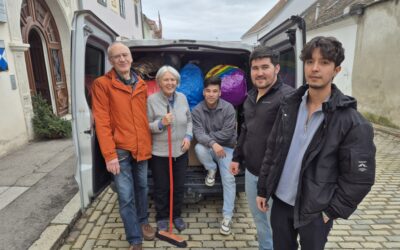 The Plenary Assembly of the Pontifical Council for Culture dedicated to emerging youth cultures was held in Rome from 6th to 9th February. The dicastery’s president Cardinal Ravasi stated that the aim of the meeting was “to listen carefully to the youth issue” that exists in society as well as in the Church, wherein the difficulty in the transmission of the faith is evident.
The Plenary Assembly of the Pontifical Council for Culture dedicated to emerging youth cultures was held in Rome from 6th to 9th February. The dicastery’s president Cardinal Ravasi stated that the aim of the meeting was “to listen carefully to the youth issue” that exists in society as well as in the Church, wherein the difficulty in the transmission of the faith is evident.
The importance of this theme was reaffirmed by the Holy Father in his meeting with the participants, where he mentioned that for the Church young people are “an essential and unavoidable point of reference for its pastoral work.” He added that “there are decidedly positive phenomena” such as “the many young volunteers who dedicate their best efforts to others in need“.
The experience of Fara, a youth of the Focolare Movement in Madagascar, confirms the pope’s words. She was invited to speak on: “Forms of participation, creativity and voluntary work”. At the age of 16, Fara attended an international meeting of the Youth for a United World, having “Project Africa’ as an on-going activity. With them she experienced that it was possible to live the radicalism of the first Christians even today. Some years later she attended the Gen School at Loppiano in Italy, where she stayed for 10 months, driven by the desire to live her faith with more intensity. During this period, she understood that “each person has something to give, even through many small actions; one gives and receives insofar as one loves. This gives rise to intercultural dialogue, which begins with an interpersonal dialogue because the dialogue is not between cultures but between people of different cultures”.
 At present this young African woman is studying Economics and Trade in Florence. It was here that she came in contact with the La Pira International Centre, where she carried out civil service and was able to continue to deepen relationships with and cultures of young people from all over the world. Besides, with other friends, she promoted the Association of African students in Florence that aims to keep alive the awareness of their cultural origins and at the same time promote universal brotherhood. At the beginning of the academic year, a counter was opened to help new students. It offered them assistance in dealing with bureaucratic matters and in facilitating their inclusion in Florence’s social life.
At present this young African woman is studying Economics and Trade in Florence. It was here that she came in contact with the La Pira International Centre, where she carried out civil service and was able to continue to deepen relationships with and cultures of young people from all over the world. Besides, with other friends, she promoted the Association of African students in Florence that aims to keep alive the awareness of their cultural origins and at the same time promote universal brotherhood. At the beginning of the academic year, a counter was opened to help new students. It offered them assistance in dealing with bureaucratic matters and in facilitating their inclusion in Florence’s social life.
In September 2012, she participated at the Genfest and presently is an active supporter of the United World Project, which would like to show the good that advances and highlight humanity’s slow but unstoppable journey toward universal brotherhood.
Fara has made the words of Chiara Lubich her very own: “Jesus would return today to “die for these people”, to save them from all evils. But Jesus came twenty centuries ago. Now he wants to return through us. Jesus was young: he wants to return especially through young people! “.





0 Comments